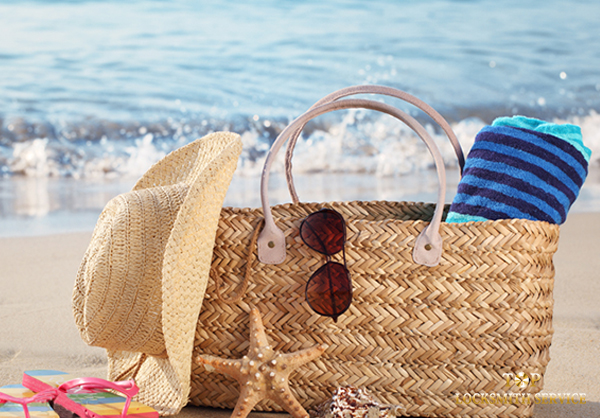While the beach is one of the most relaxing locations for almost everyone, it’s still really important to be aware of your personal belongings while you’re enjoying the surf and sun. Burglars definitely commonly take advantage of the relaxed state that many people are in when they visit the beach, commonly swiping and stealing wallets, purses, or entire backpacks. In this blog entry, I’ll provide a guide to the essentials of beach security – by familiarizing yourself on what to watch out for, and what to be aware of you will greatly mitigate the chances that you might become the victim of beach theft.
Protecting your Belongings
- Don’t leave your belongings unattended, or in plain open site when you’re at the beach. If you’re leaving anything inside your car, leave it inside the trunk just to be safe.
- Bring as little valuables with you as possible. Jewelry or expensive cameras should be left at home – or if you’re on vacation, put them inside your hotel safe.) When you’re at the beach all you really need to take is your ID, whatever cash you might need throughout the day, and your credit card.
- If you’re going to the beach alone, get a waterproof pouch for your phone and cash that you can take out swimming with you. Make sure to test that it works before trying it with your phone.
- If you’re just taking a quick dip and don’t want to carry your things with you, consider cleaning out an empty sunscreen bottle and filling it with your keys, cash, cards, or anything that you don’t want to bring in the water with you.
- Don’t carry an expensive looking or blatantly designer backpack or beach bag.
Protect Your Body
- Make sure to look at the tide before you go in the water. Rip currents are indicated by brown water (from the sand being moved), heavy debris floating out towards the ocean, and a patch of extreme ripples with calm water all around it. If you get caught in a riptide, swim towards it’s side to escape it rather quickly – never swim against it.
- Inflatable toys aren’t the safest on the beach, so if you’re using them make sure that someone is looking out for you.
- Make sure to stay hydrated and use a waterproof sunscreen with broad UV spectrum protection – at least an SPF 30.
Familiarize yourself with your Vacation Environment
- If you’re going to a beach you’ve never been before or one in a foreign country, make sure to understand the local customs. In Brazil, for example, people don’t bring towels to the beach. They use Brazillian sarongs to lay on the sand. If you don’t want to draw attention to the fact you’re a tourist, leave the towel at your hotel.
- Make sure to be on your best and clearest level of judgement and awareness if you visit the beach after dark – and make sure to take the advice of any locals who recommend avoiding certain areas.
- Always observe local customs as to appropriate public dress and behavior while you’re on the beach. Two-Piece bikinis, while considered fine in many areas, are totally taboo in some countries, and wearing one will draw a lot of negative attention. Make sure to research the beach you’re going to before you stake your shore spot.
